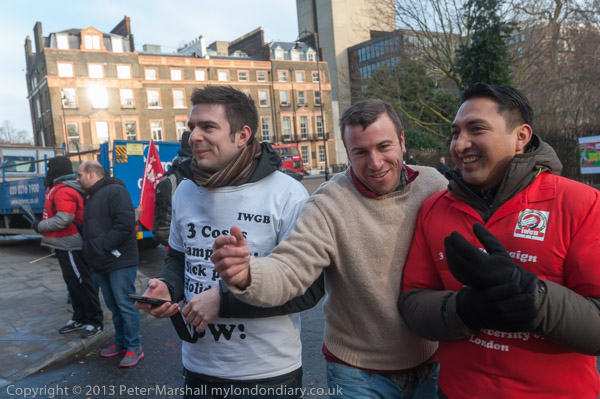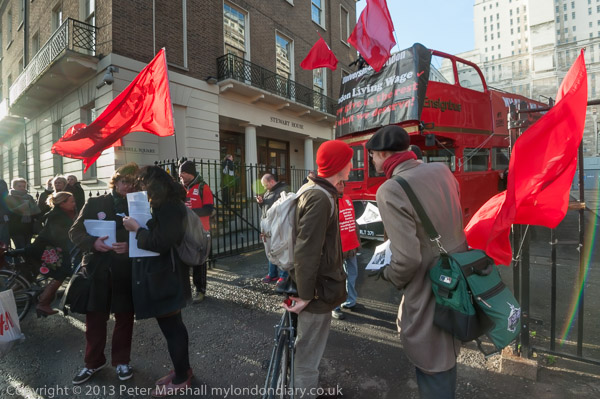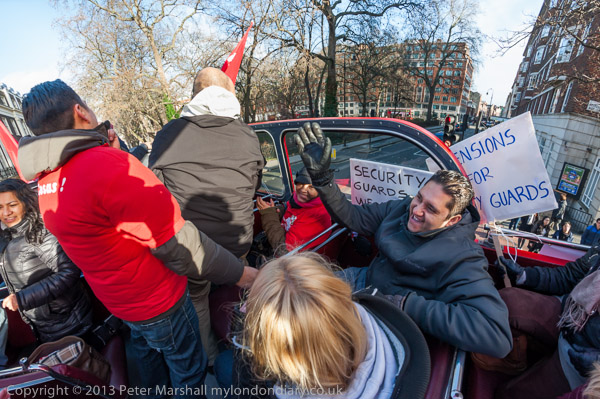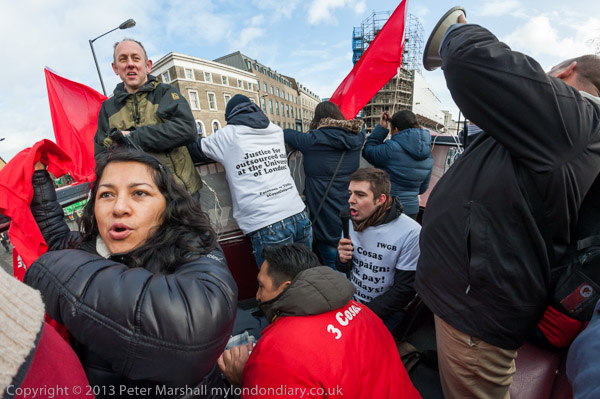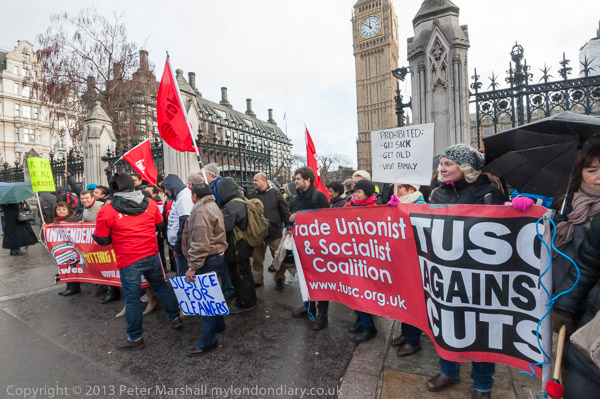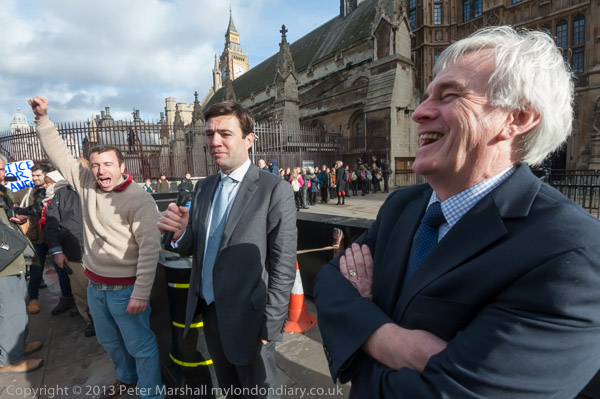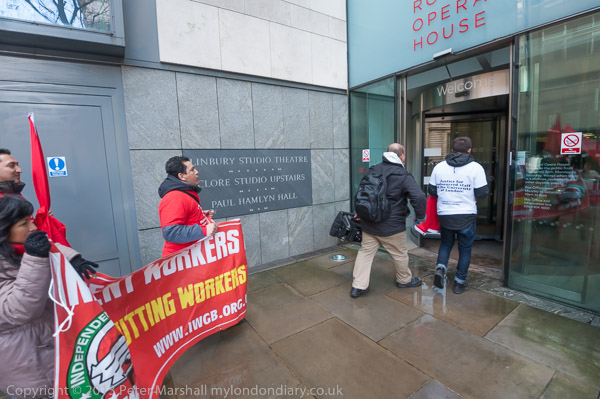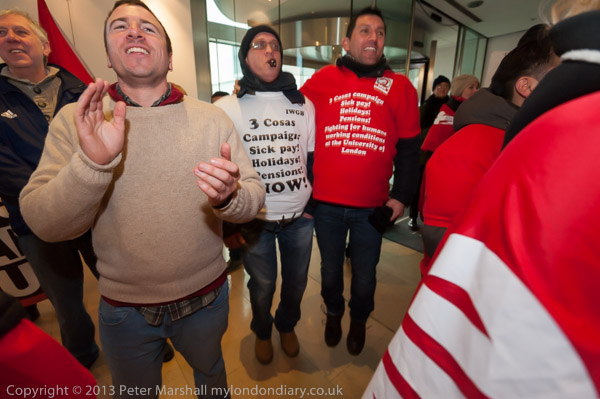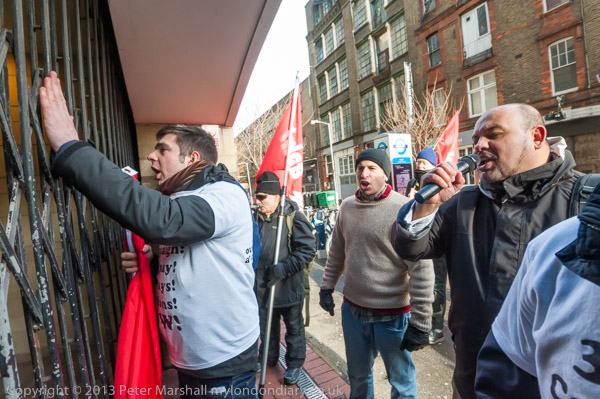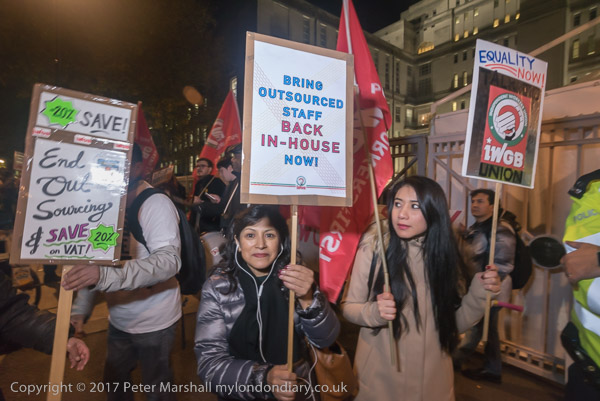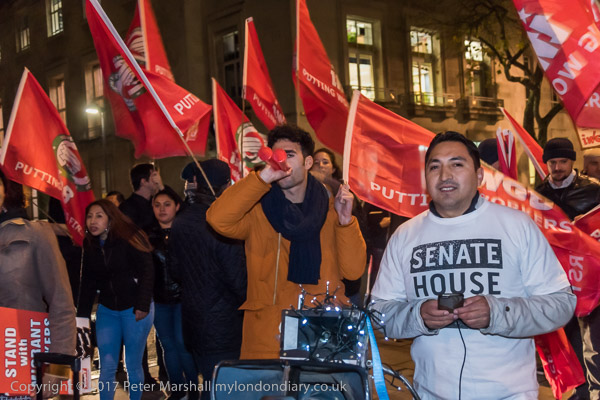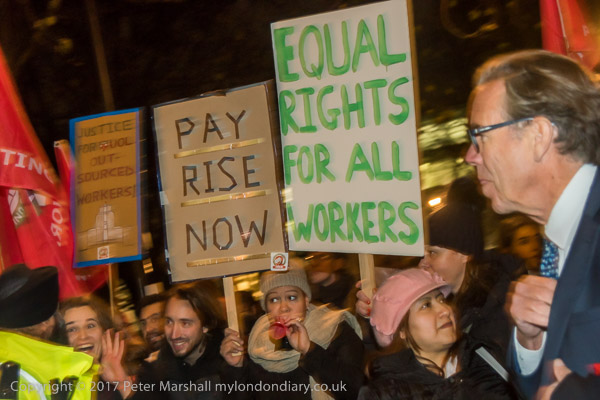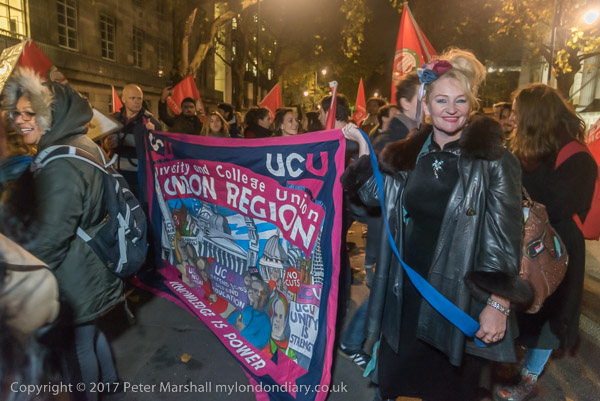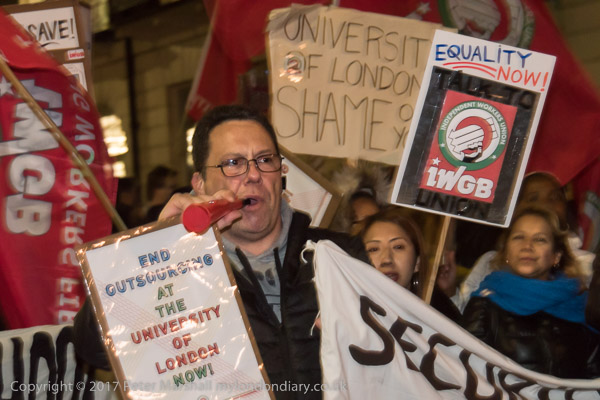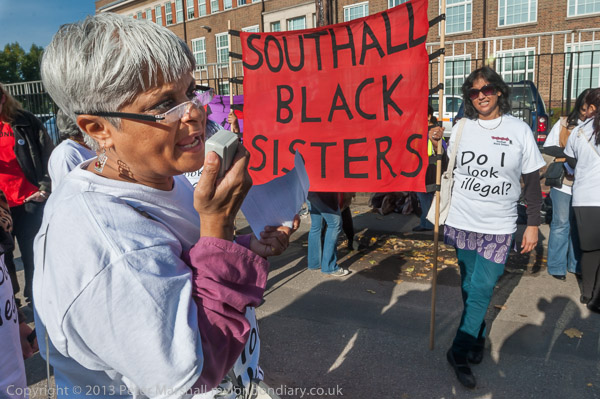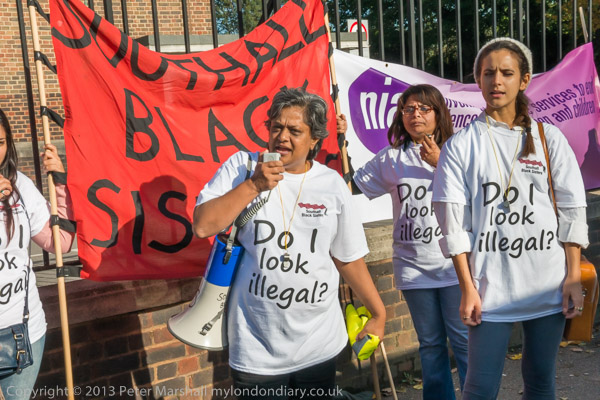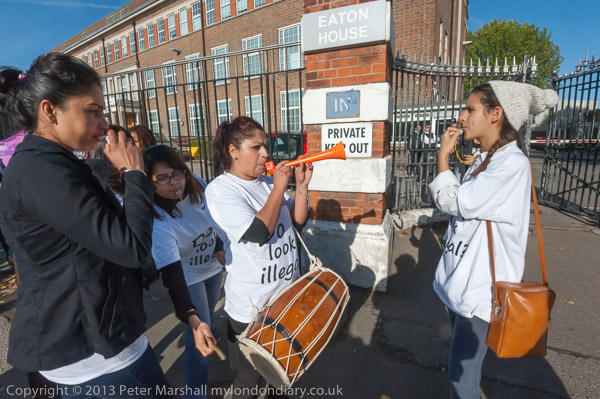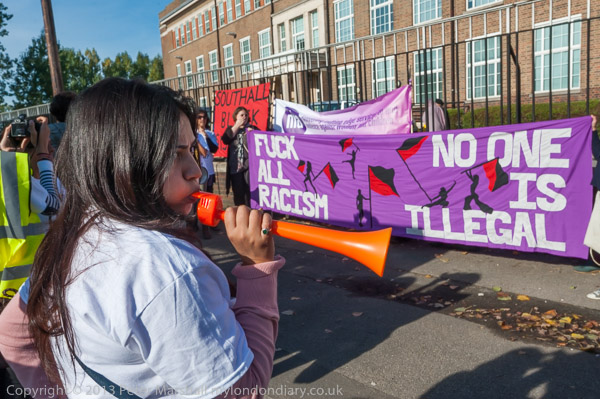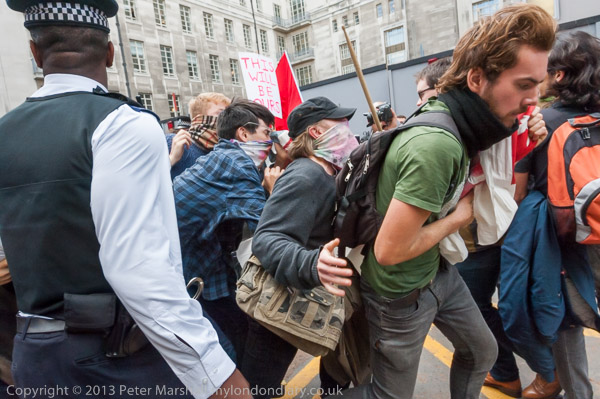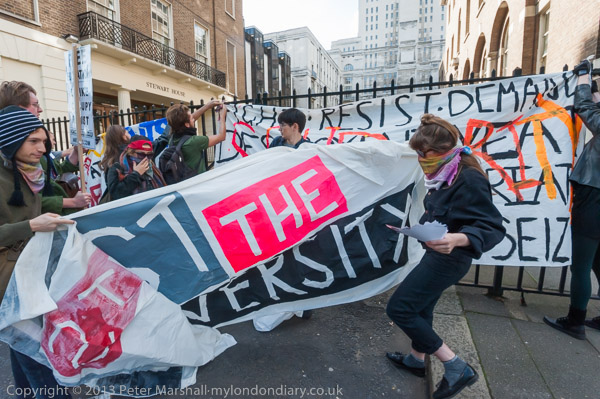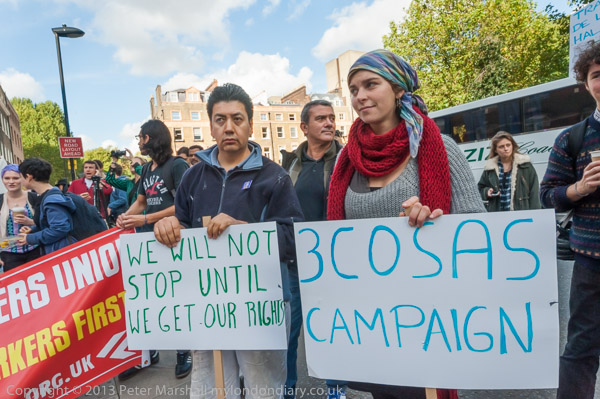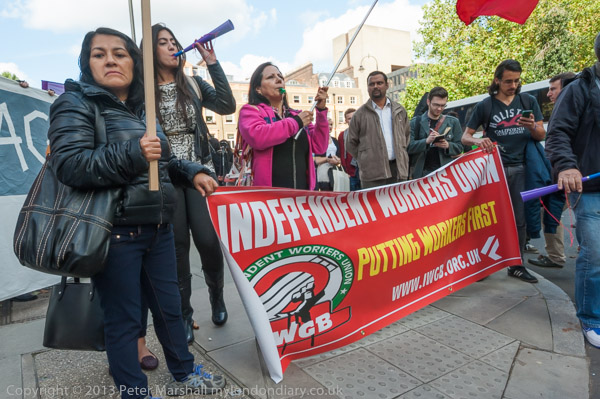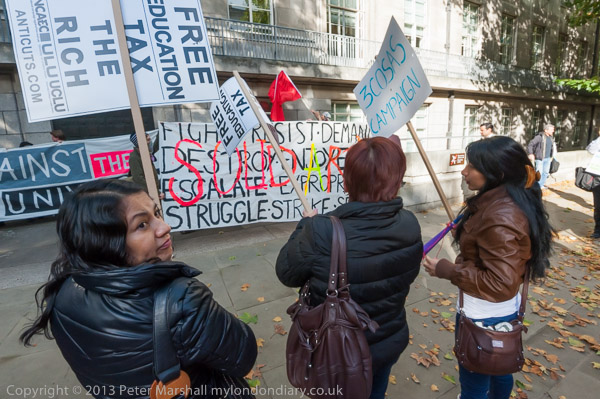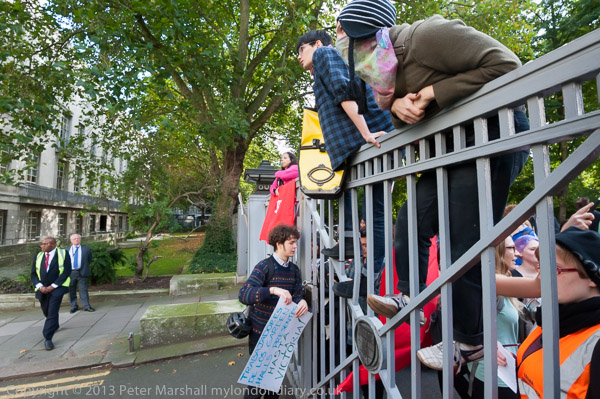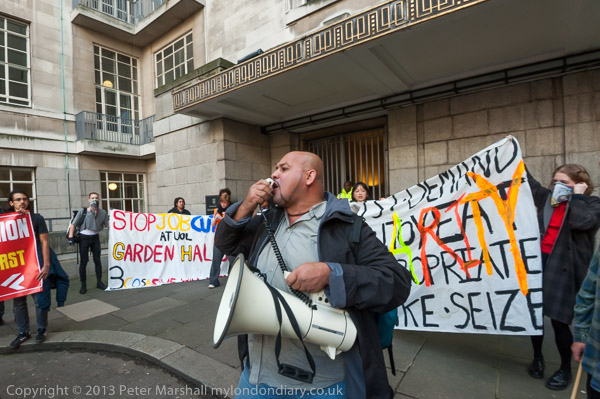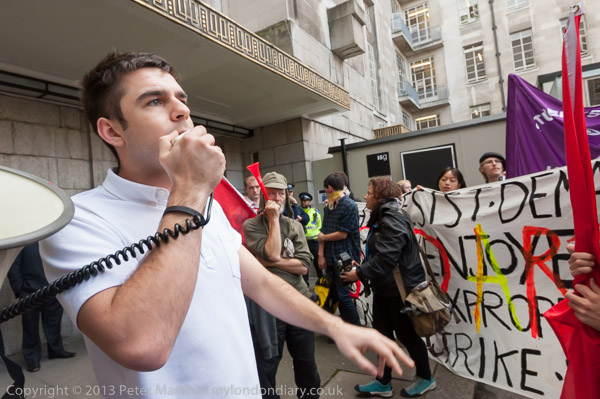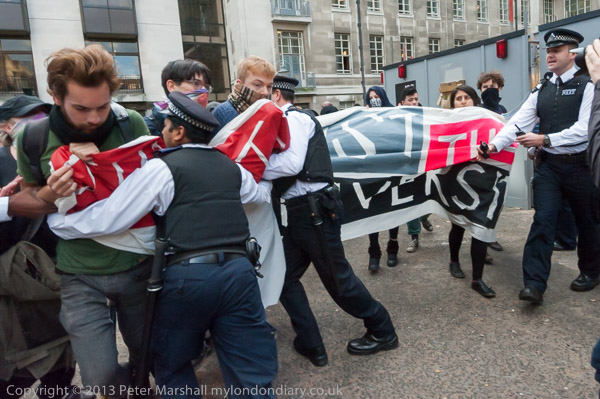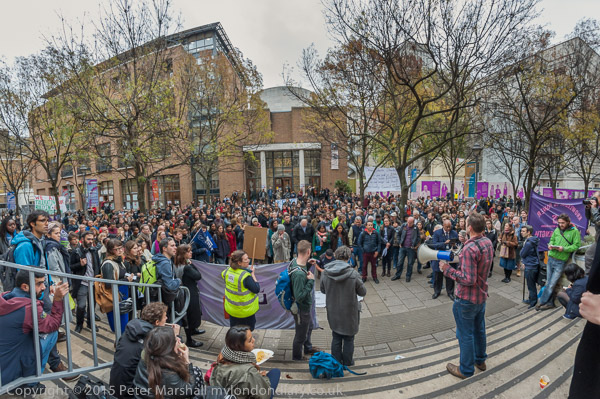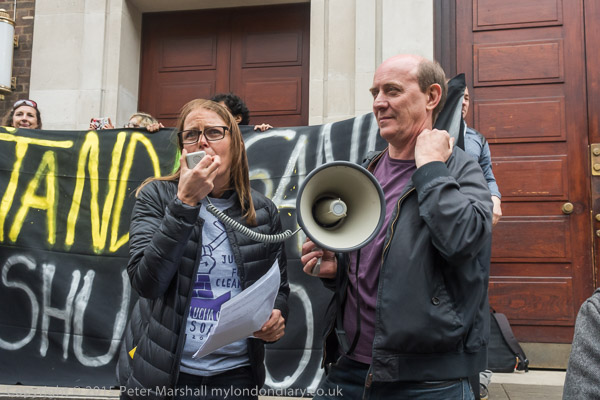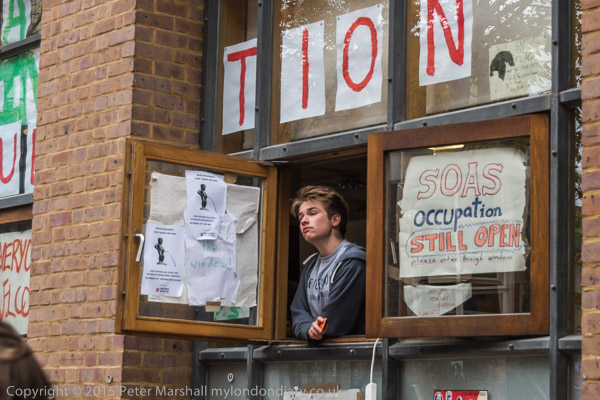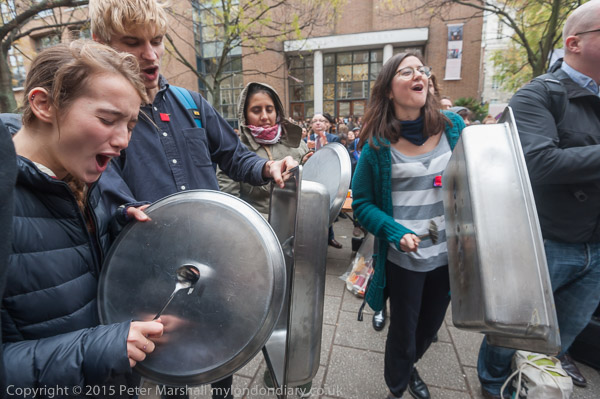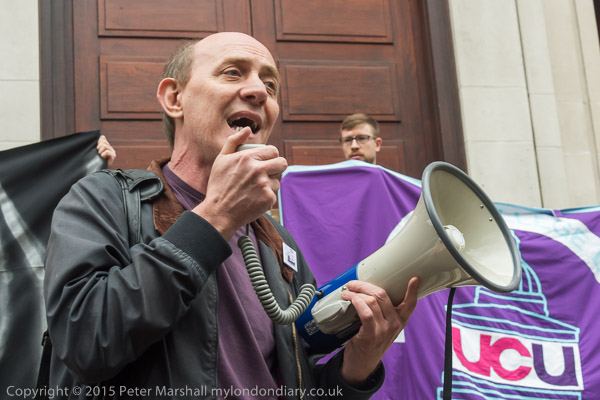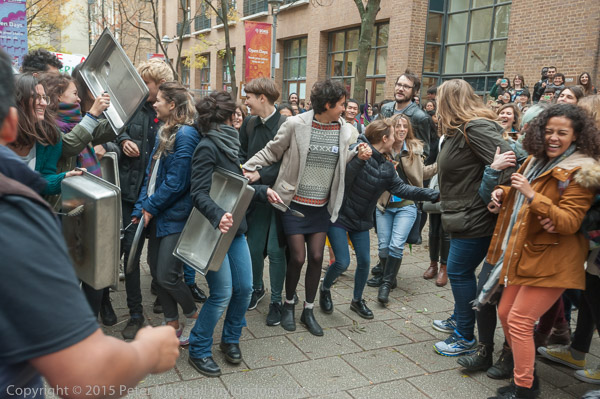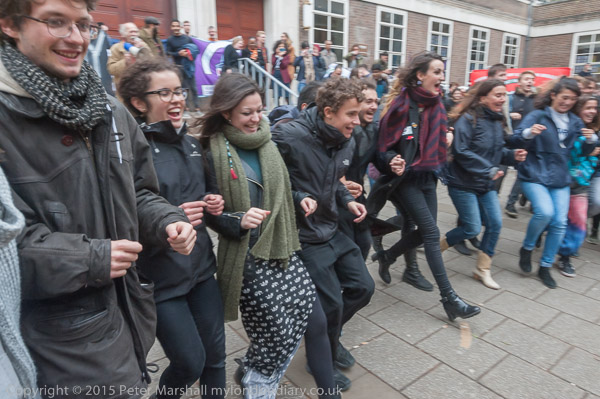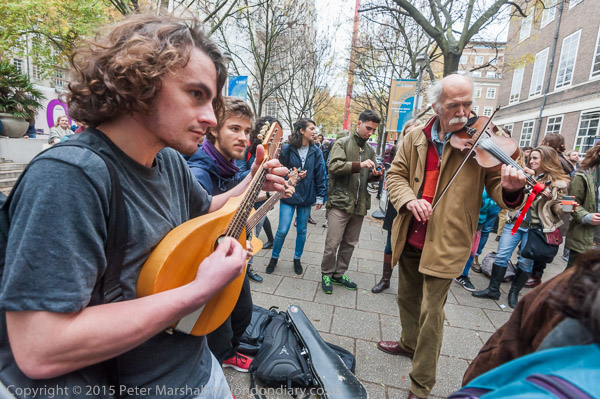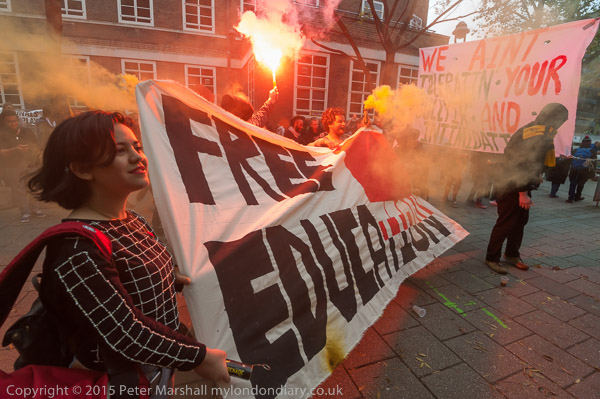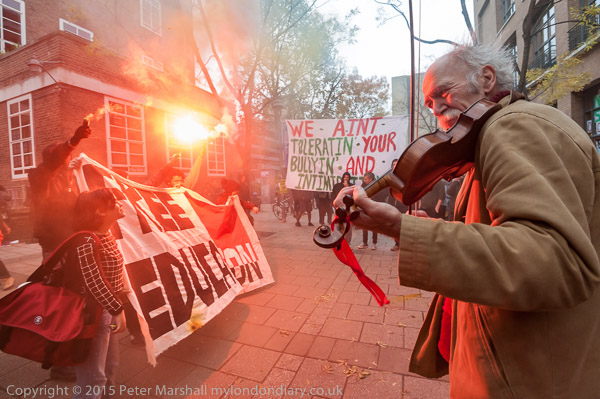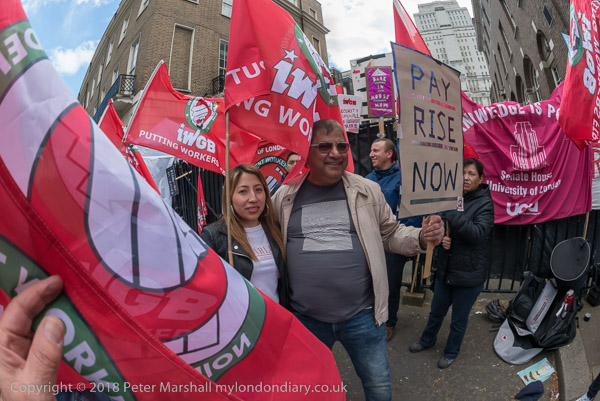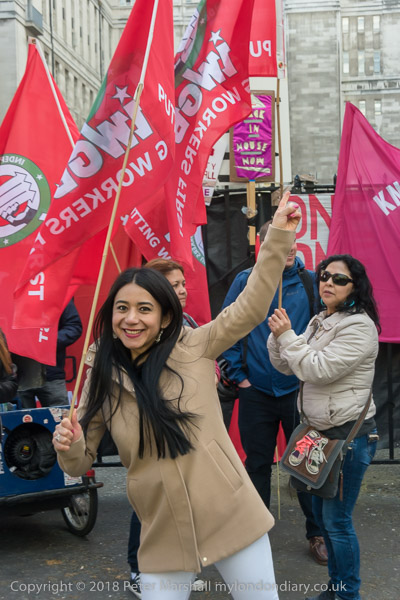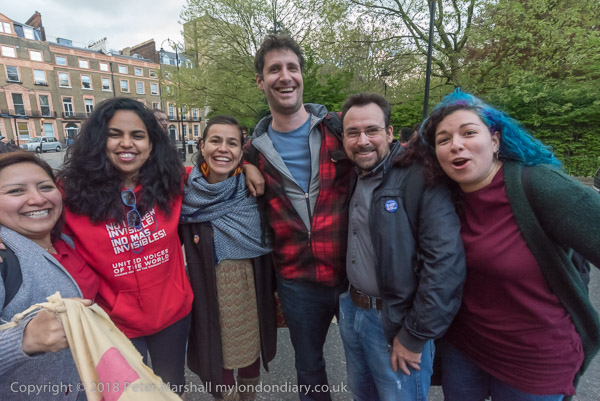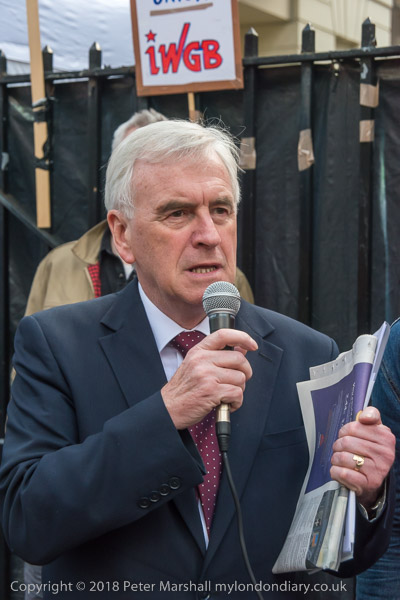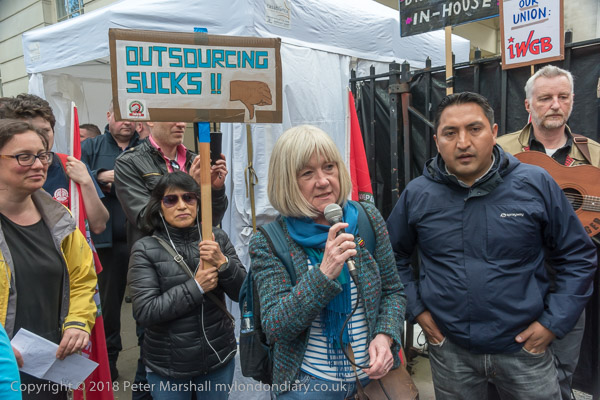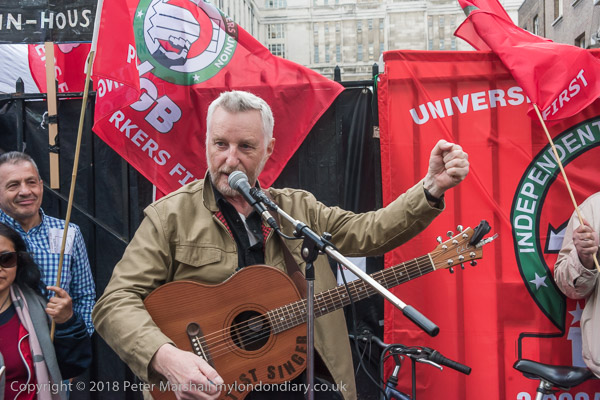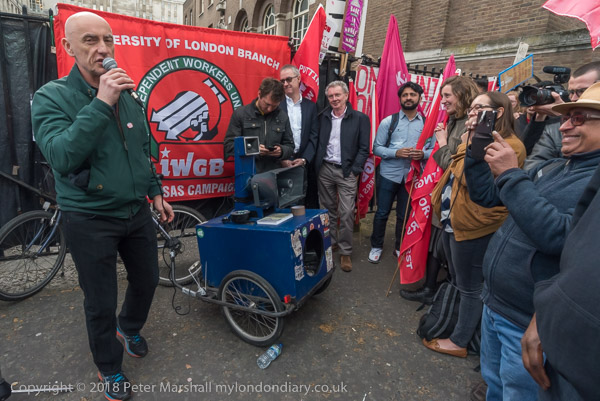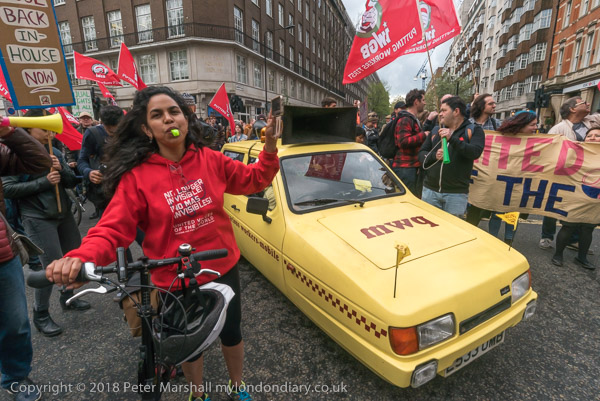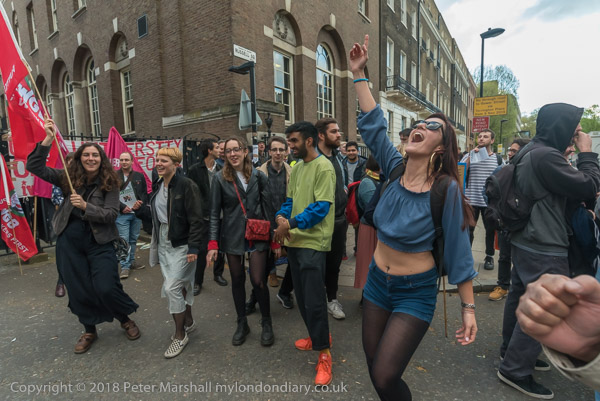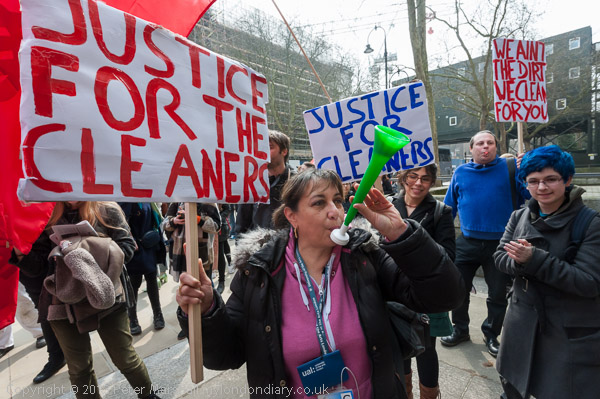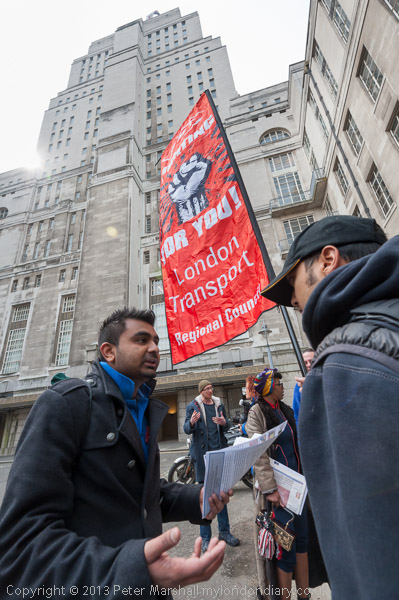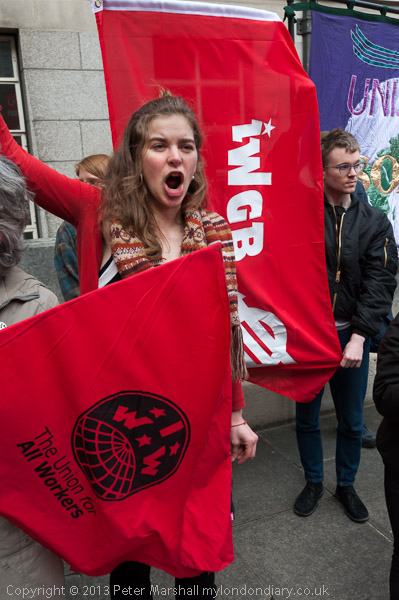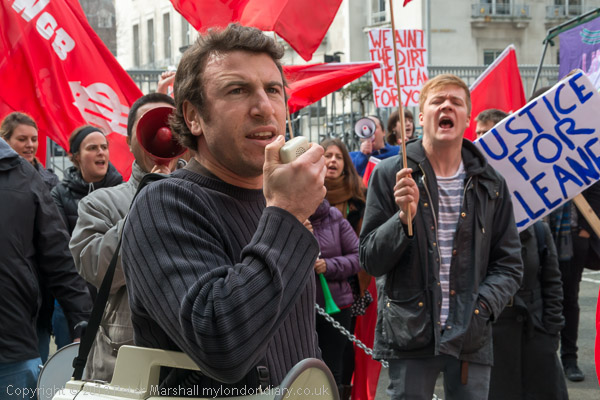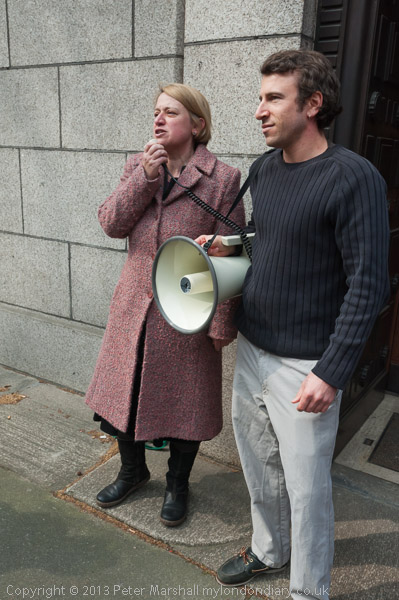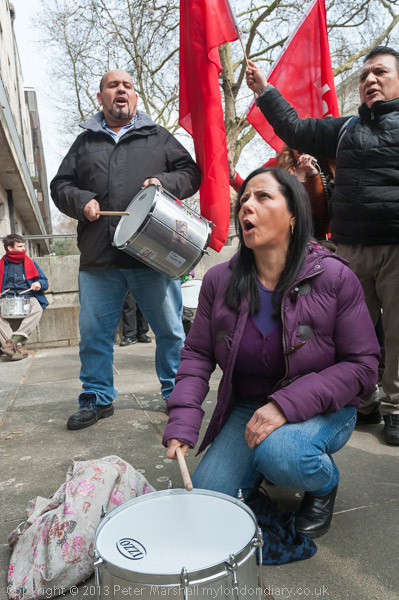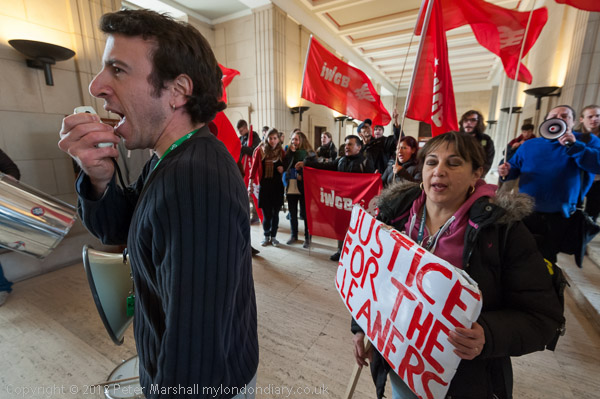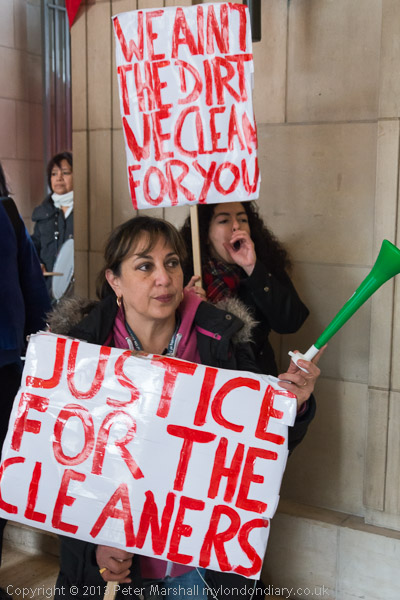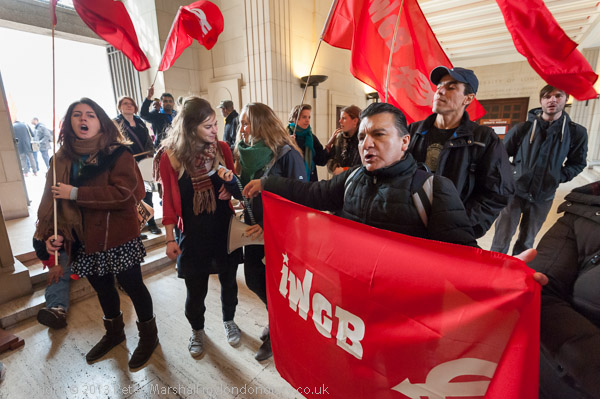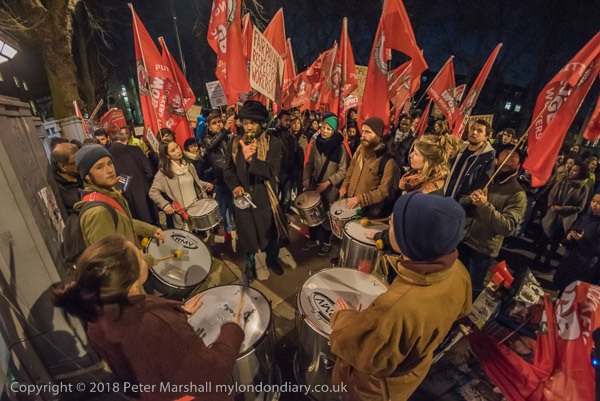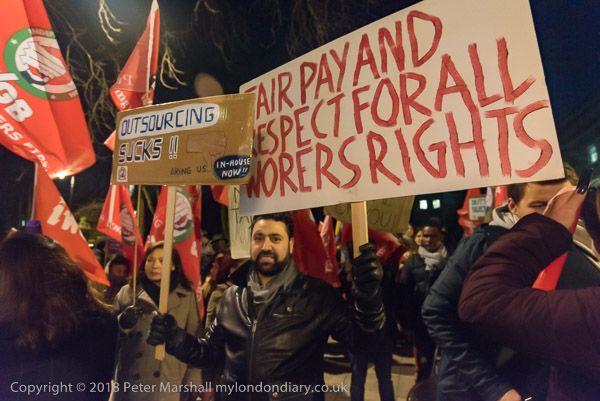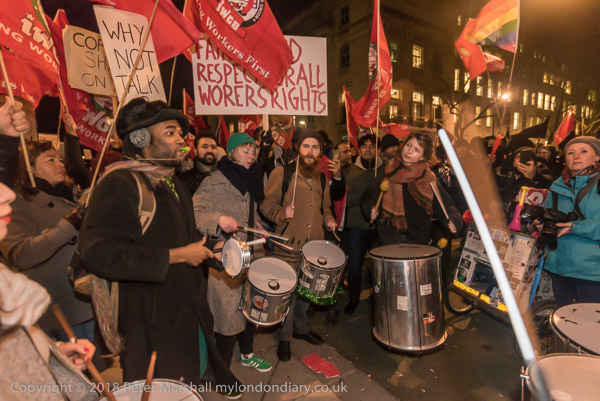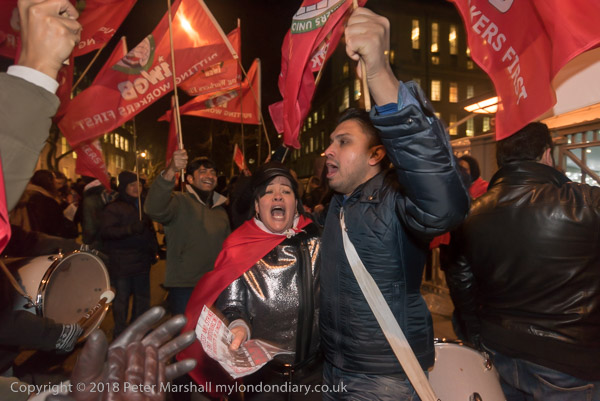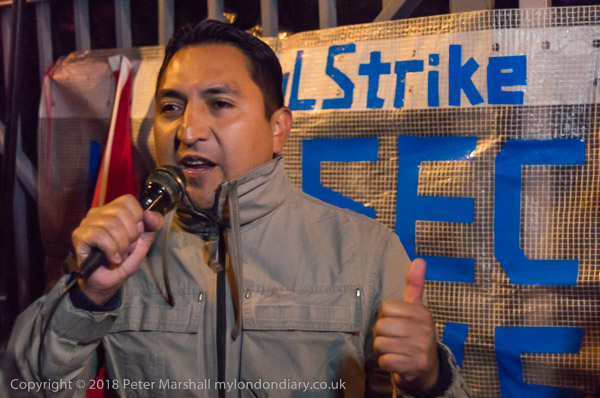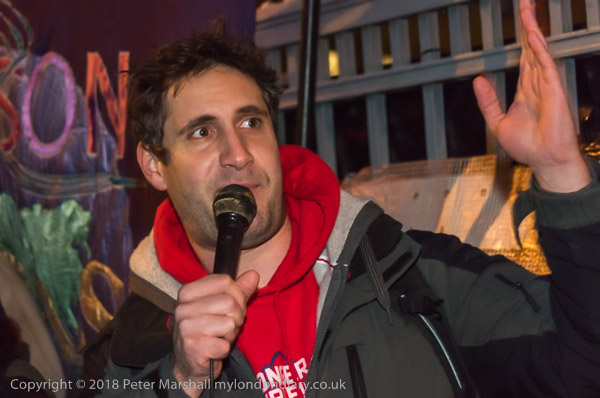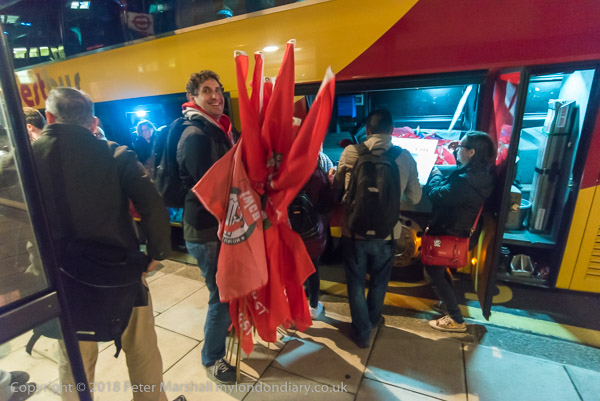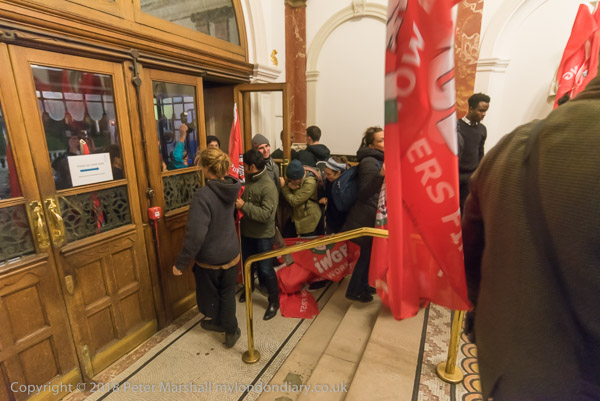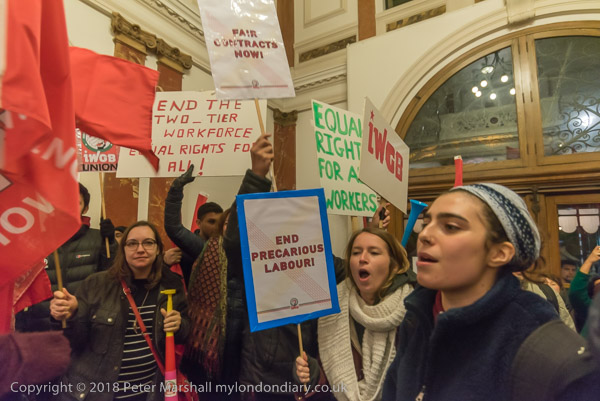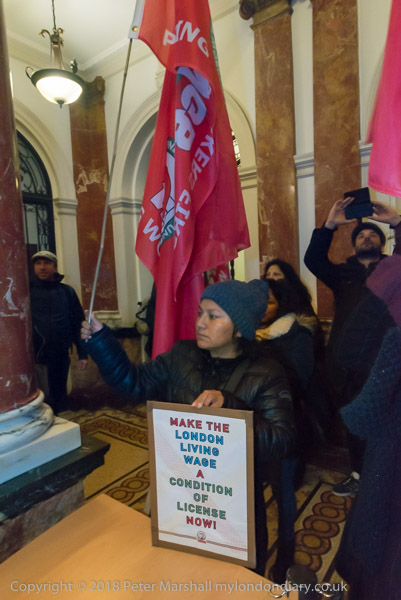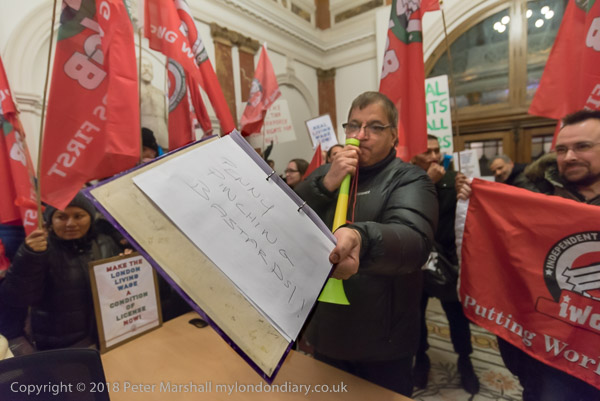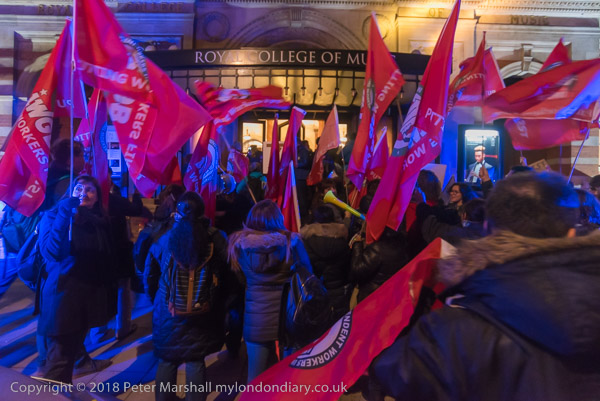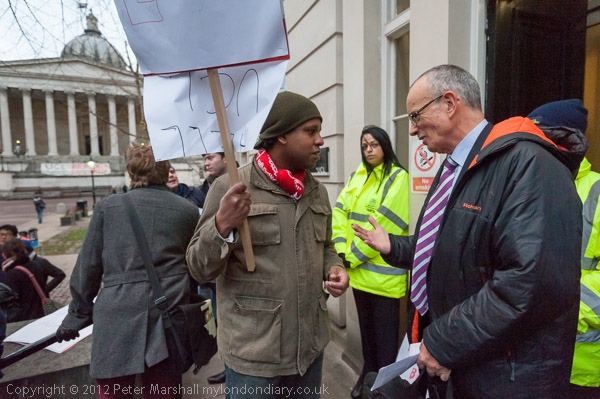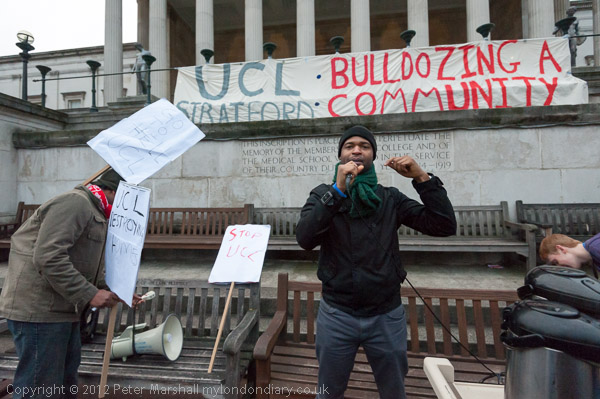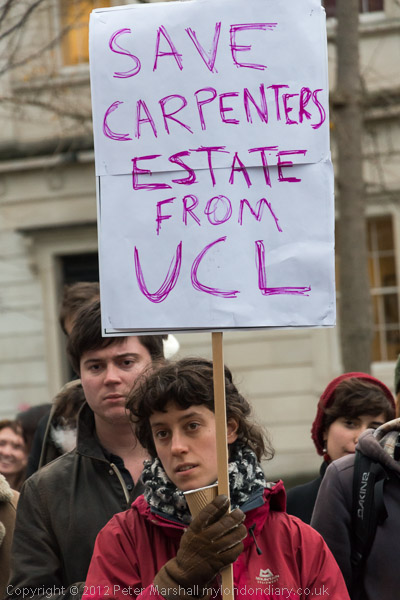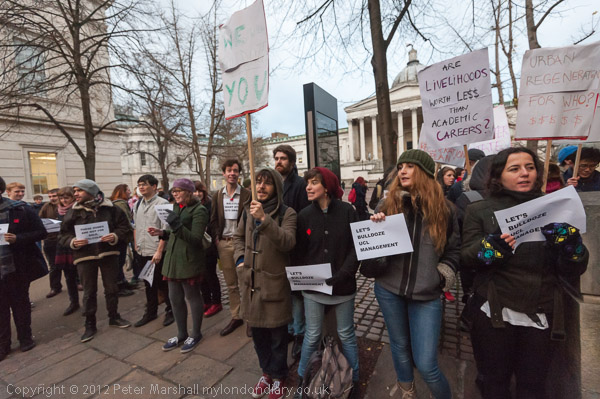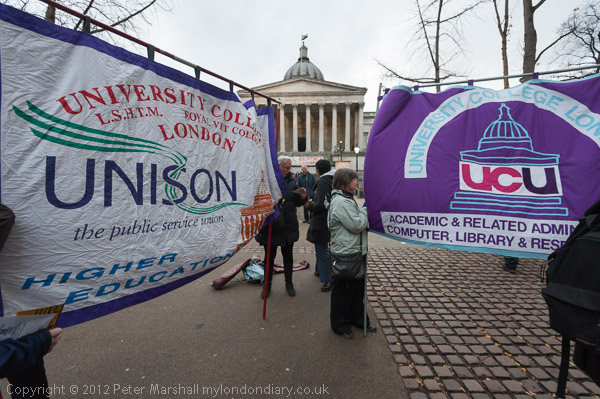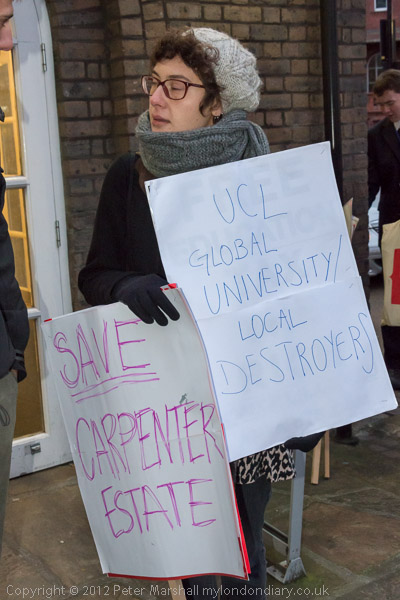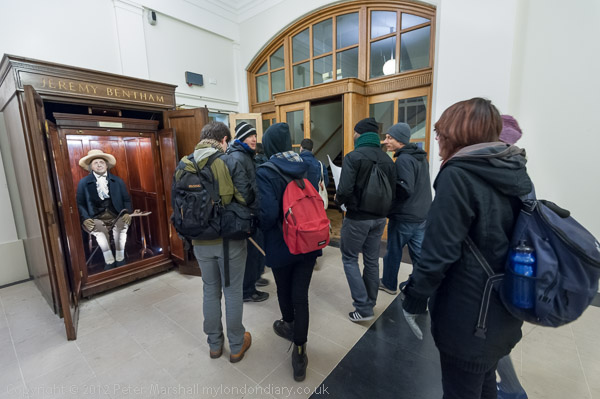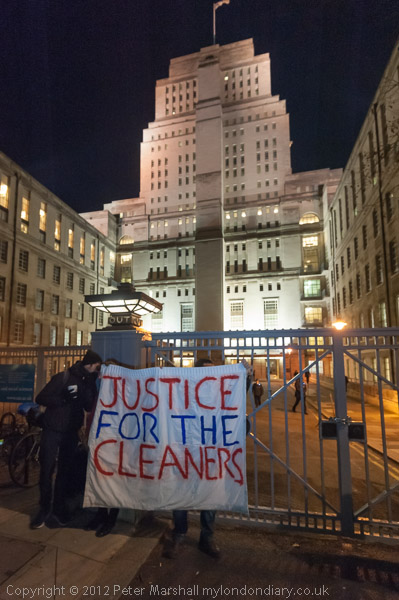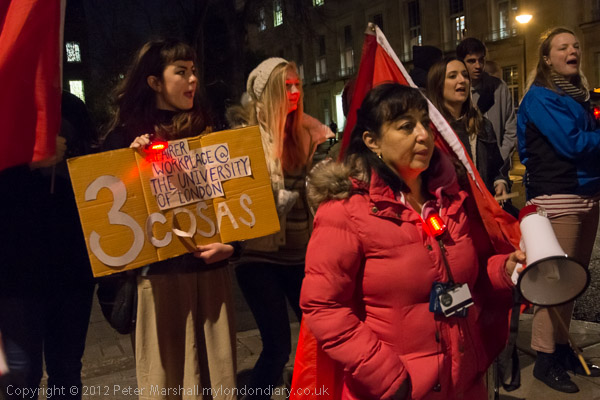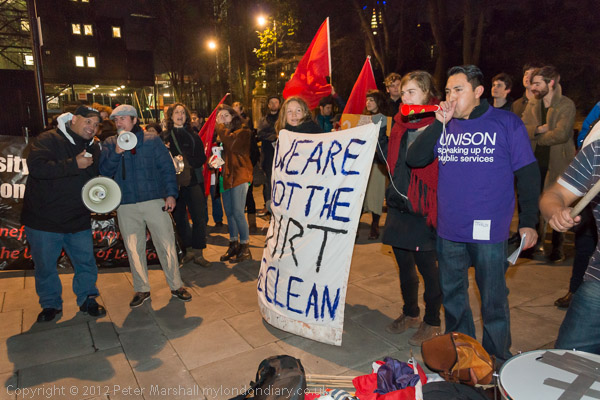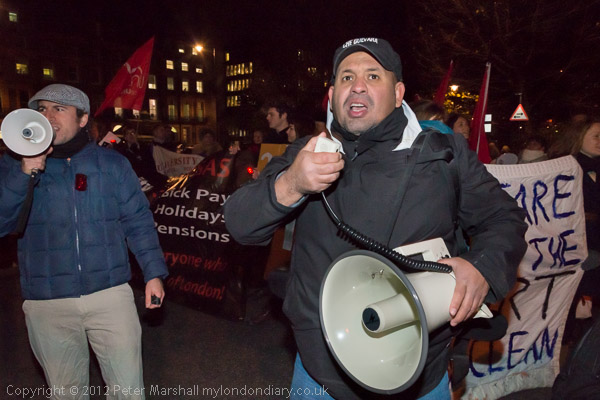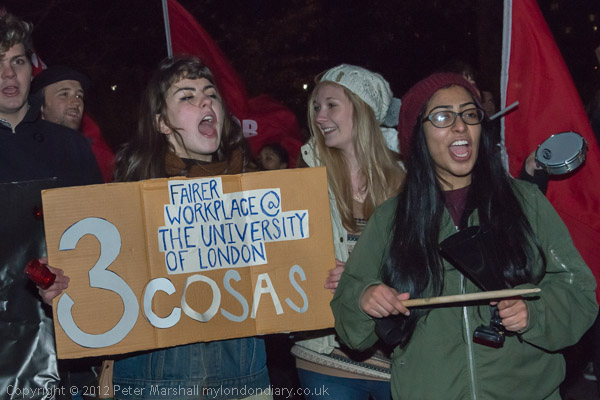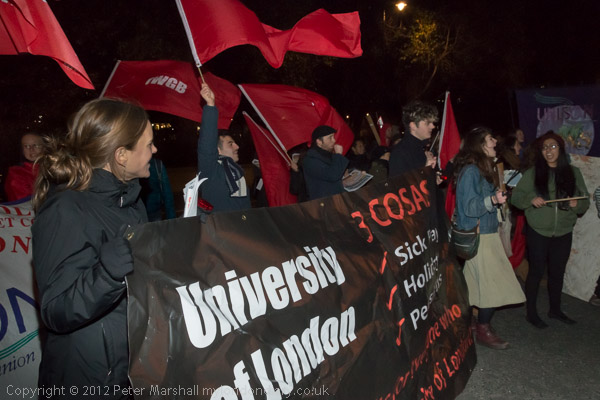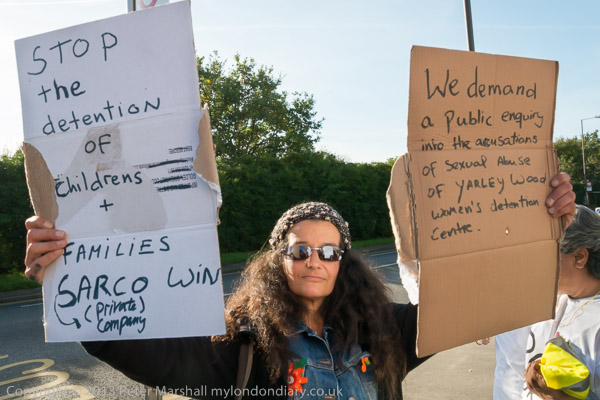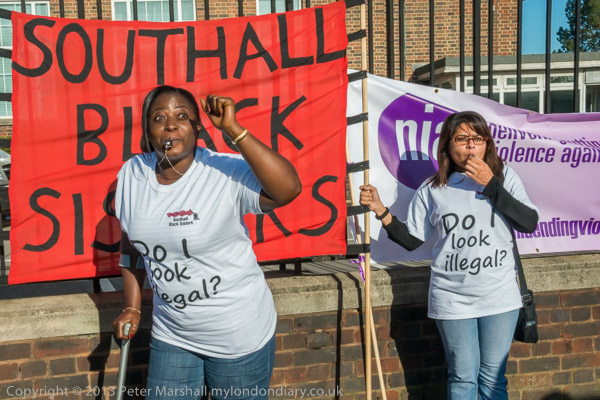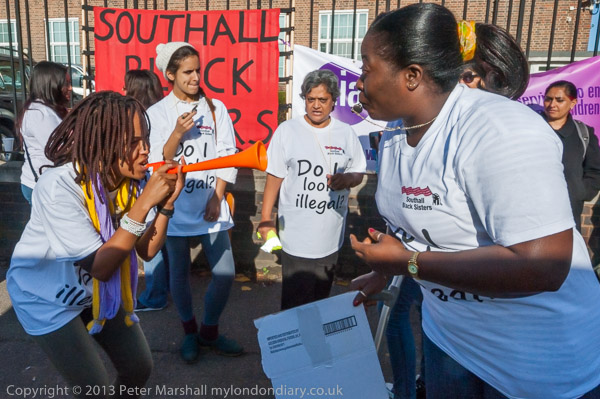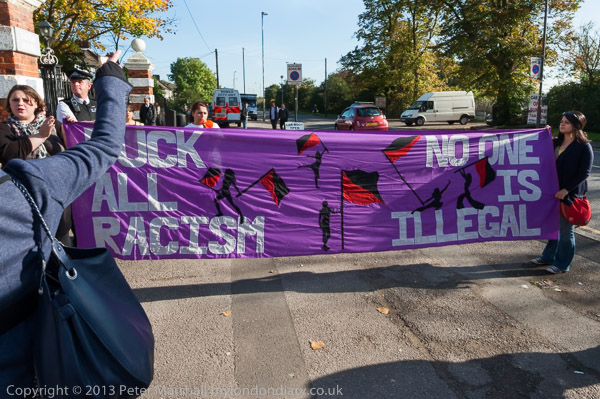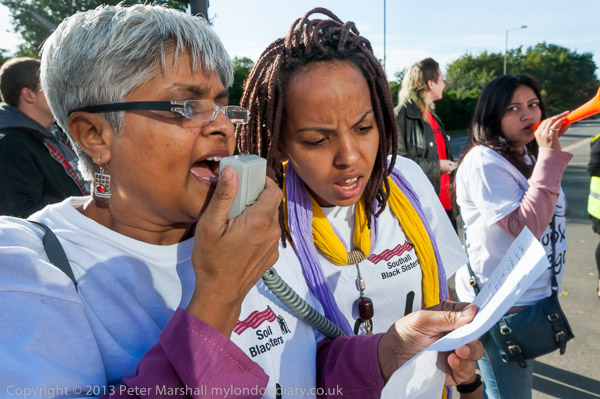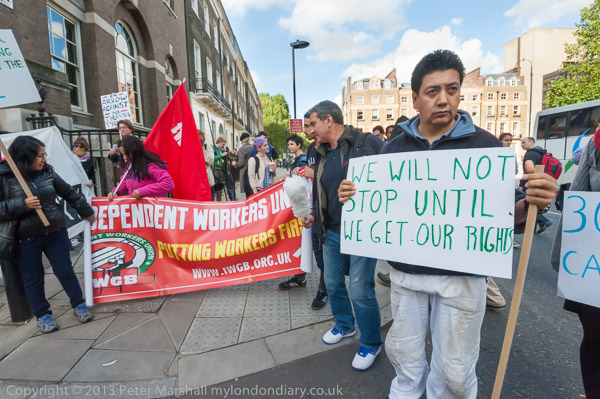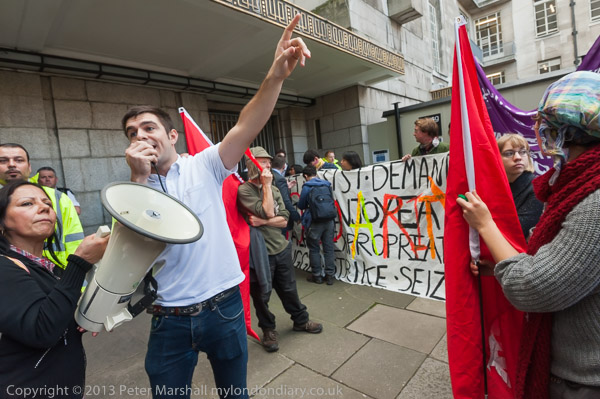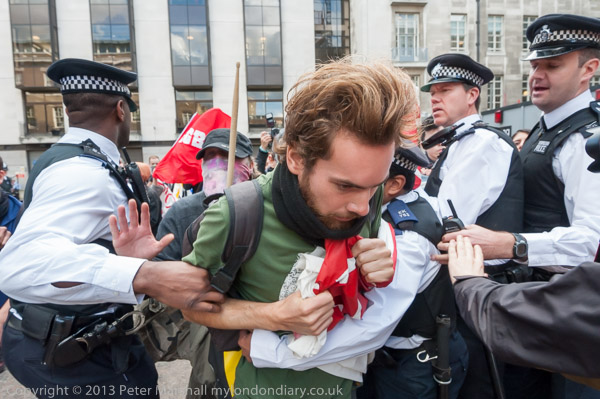Outsourcing, North Woolwich & Rees-Mogg Freakshow: Tuesday 26th February 2019 was a long day for me, beginning with a day of action over the outsourcing of workers on the day of a High Court challenge to extend the legal rights of the 3.3 million outsourced workers. In the afternoon I went to complete a walk I’d begun several months earlier in North Woolwich, returning to cover a protest by Class War outside a performance by Jacob Rees-Mogg at the London Palladium.
Rally for an end to Outsourcing – Parliament Square
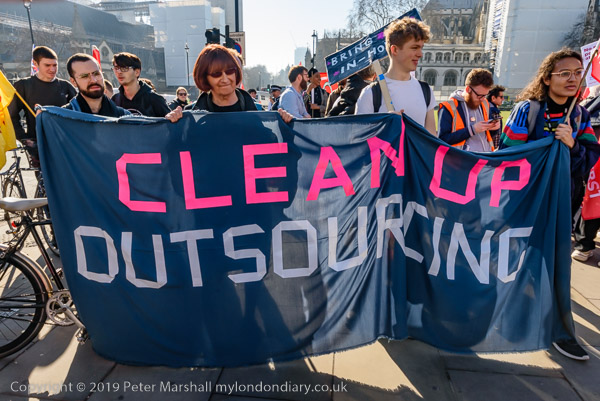
The day of action by outsourced workers had actually begun several hours earlier at 8.00am at the University of London from where they had marched to protest outside the High Court before I met them for a rally against outsourcing in Parliament Square.

The day was a part of a coordinated strike action by outsourced workers, mainly migrants, working at the Ministry of Justice, Dept for Business, Energy & Industrial Strategy and the University of London, organised by the grass roots unions United Voices of the World (UVW), the Independent Workers’ union of Great Britain (IWGB) with the BEIS PCS branch .

The unions argued that outsourced workers should be able to collectively bargain with the management of their actual workplace as well as the outsourced employer and that not being allowed to do so was in breach of article 11 of the European Convention on Human Rights. You can read more about the case which the High Court dismissed in an insightful article by Tom Long for Personnel Today.

Had the legal challenge been successful it would have greatly extended the legal rights of the UK’s 3.3 million outsourced workers and have led to a great improvement in their working lives.
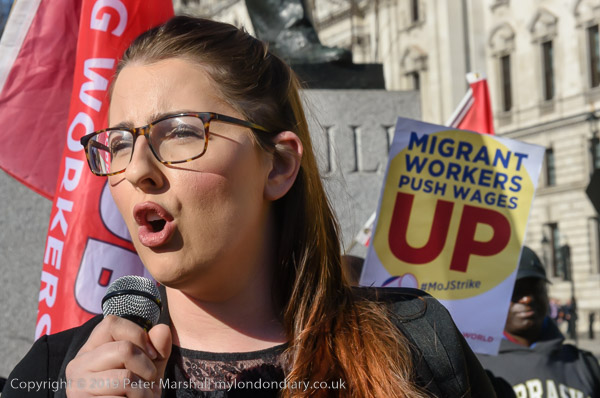
Several Labour MPs came to speak at the rally and support the demand to end outsourcing which creates insecurity, discrimination and low pay.
Rally for an end to Outsourcing
Outsourced Workers protest at BEIS
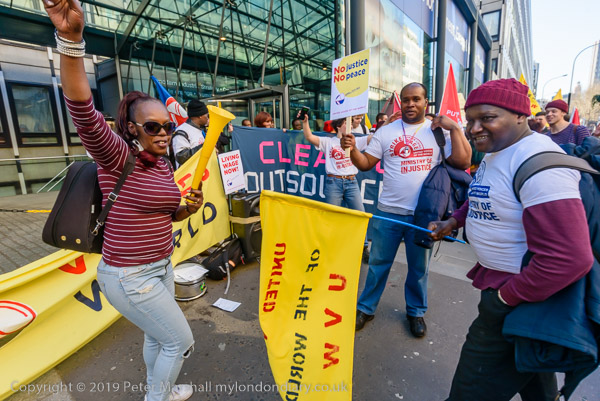
After the rally the the protesters marched around Parliament Square and then along Victoria Street to protest outside the Dept for Business, Energy & Industrial Strategy.
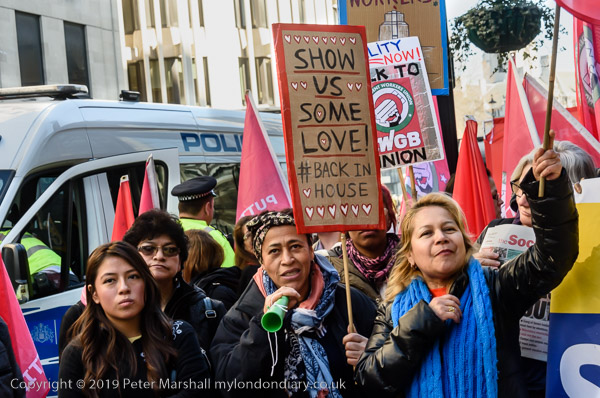
Strikers at BEIS included catering and security staff who are members of the PCS and are demanding the London Living Wage as well as end to outsourcing.

Among the speakers at the rally here was then Labour MP for Derby North Chris Williamson who was under investigation for his comments about the party’s response to allegations of antisemitism in the party – and was eventually barred from standing for Labour in the 2019 election.
Outsourced Workers protest at BEIS
Outsourced Workers at Justice ministry

The protesters marched on to the Justice Ministry in Petty France.
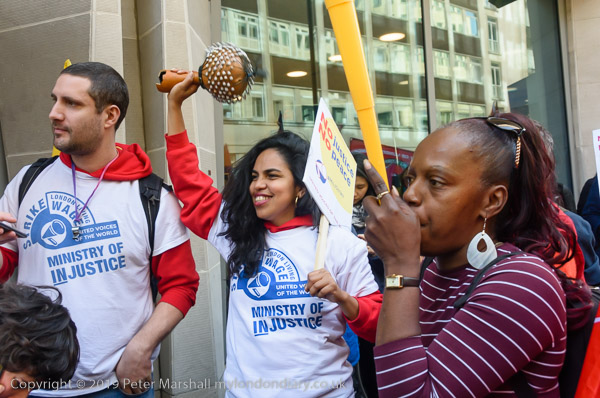
Low paid workers belonging to the United Voices of the World union at the Ministry of Justice have been campaigning for some time to get the London Living wage, but the Justice Minister has been unwilling to talk with them. They call it the Ministry of Injustice.
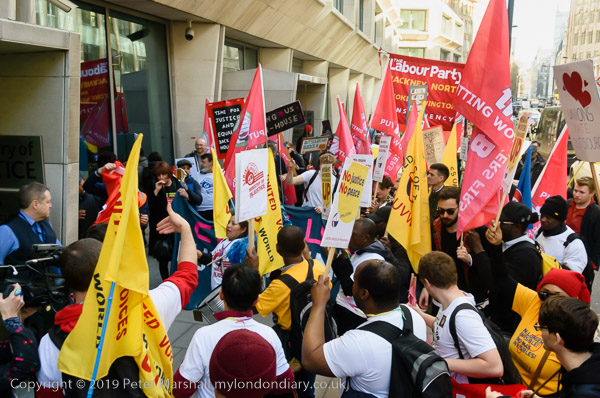
They are also calling for an end to outsourcing and the insecurity, discrimination and low pay it causes. A number of trade unionists came to speak in support of outlawing outsourcing and to support the strikers in their claims.
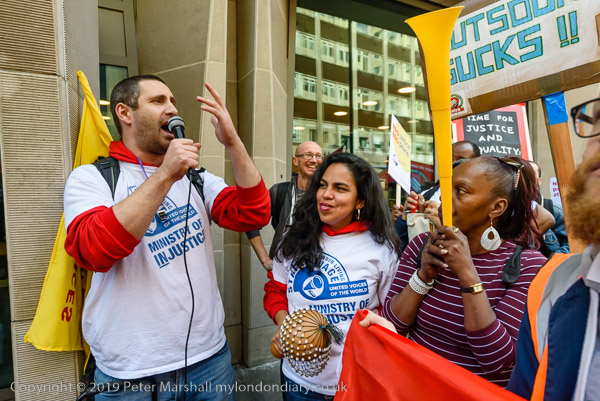
This was a loud and boisterous protest with drumming, music and dancing on the pavement and street outside the ministry.
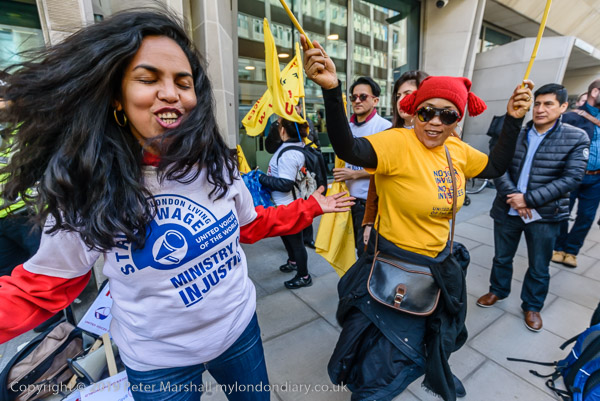
During the protest some of those who had already been on strike for 24 hours went back into the ministry to resume work, to cheers and hugs from those outside.
Outsourced Workers at Justice ministry
North Woolwich Walk

My attempt to go for a walk along the Capital Ring in North Woolwich was made difficult by the DLR having a temporary shut-down and I arrived an hour later than intended and was unable to finish the walk – I came back several months later to do so.

It wasn’t ideal weather particularly for the panoramas I was trying to make with a clear blue sky. And finally I failed to put all the pictures I had intended onto the web page – including these two
Class War protest Rees-Mogg freak show – London Palladium
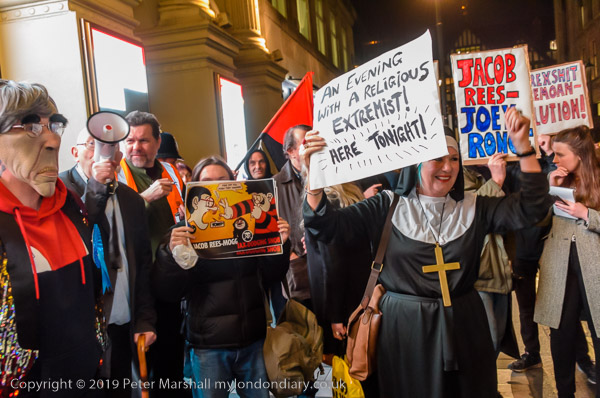
Class War protest outside the London Palladium as fans who had paid £38 for a ticket entered to listen to Jacob Rees-Mogg.
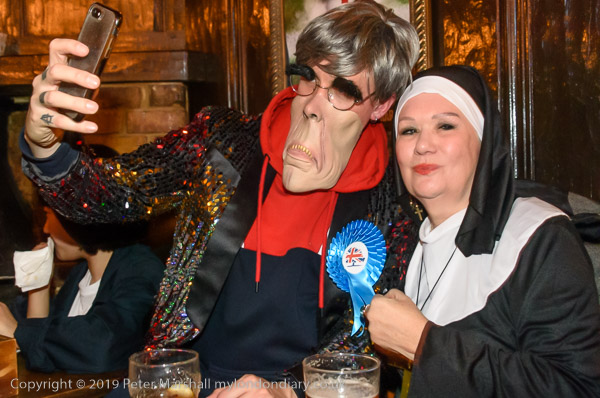
With Jane Nicholl dressed as a nun, Mother Hysteria, and Adam Clifford as Jacob Rees Mogg they loudly asked why people had come to listen to him “spout homophobic, transphobic, racist, pro-hunting, misogynist, classist, privileged” nonsense.
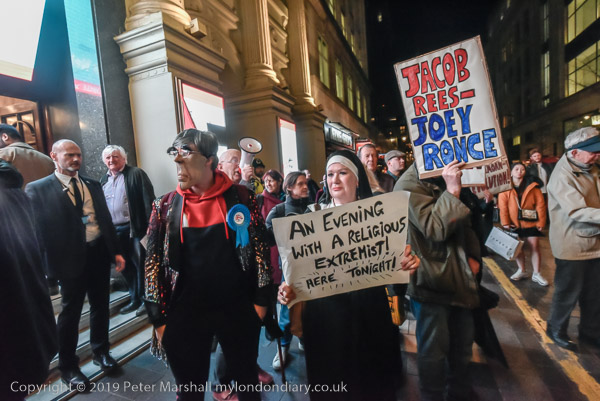
It was certainly a better show than anything that would take place later inside the venue, and all for free. You can read an excellent account of it on Inside Croydon.
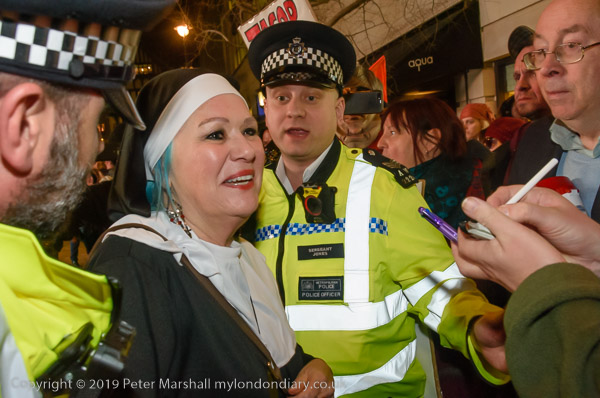
Later Police searched Jane Nicholl and threatened to arrest her for carrying offensive weapons after it emerged she had brought some novelty stink bombs to the protest.
Class War protest Rees-Mogg freak show
Flickr – Facebook – My London Diary – Hull Photos – Lea Valley – Paris
London’s Industrial Heritage – London Photos
All photographs on this page are copyright © Peter Marshall.
Contact me to buy prints or licence to reproduce.
